Original author:Vitalik
Compiled by: Odaily Asher
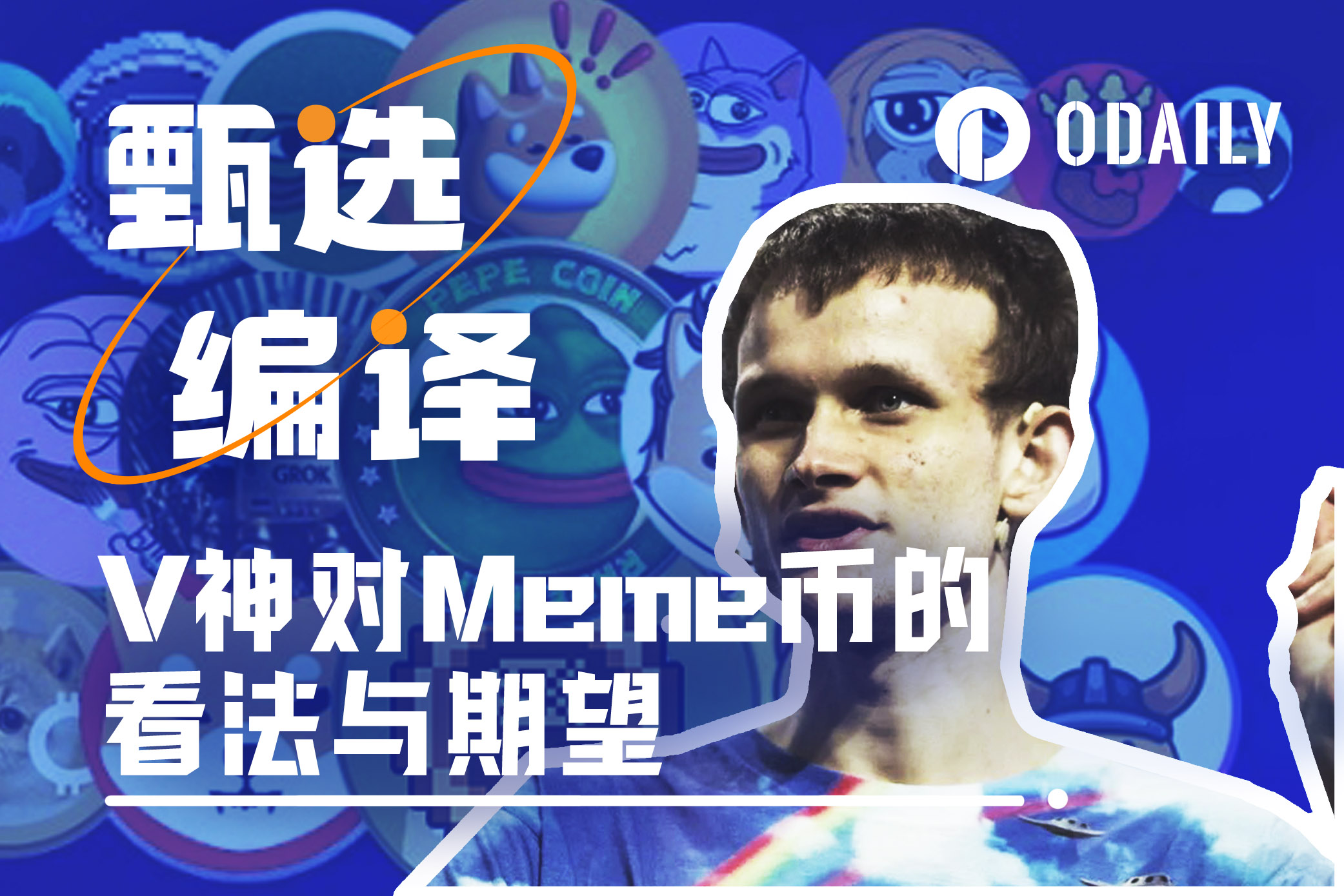
Ten years ago, two weeks before the Ethereum project was publicly announced, IBitcoin Magazinepublished an article arguing that issuing tokens can be a new way to fund important public projects.
The central idea of the article is:Society needs to fund worthwhile large-scale projects, markets and institutions (both business and government) are the main technologies we have today, and they work in some cases and fail in others.
Issuing new cryptocurrencies appears to be a third category of large-scale financing technology that is clearly differentiated from markets and institutions, so there may be successes and failures in different places - it could fill some important gaps .
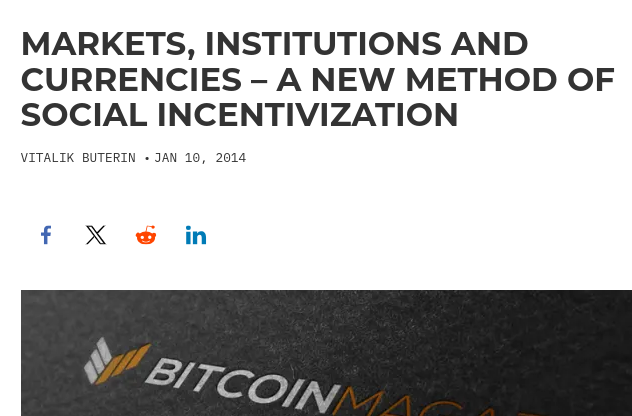
People who care about cancer research can hold, accept and trade anti-cancer coins; people who care about environmental protection can hold and use climate coins, and so on. The currency people choose to hold will determine which causes are funded.
In 2024, a major topic of discussion in the “crypto space” seems to be “Meme coins”. In fact, we have seen Meme coins before. Meme coins have existed since the release of Dogecoin in 2015, and Dogecoin is a hot topic throughout 2020 and 2021.
This time, meme coins are heating up again, but in a way that is disturbing to many, because there’s nothing particularly new about these “meme coins.” In fact, on the contrary, some Meme coins on the Solana ecosystem have recently openly displayed extreme racism. And even for non-racist meme coins, their prices often fluctuate up and down, providing no value to people. This makes people upset:
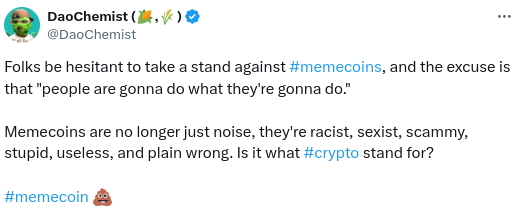
Even the philosopher Polynya, who has long supported Ethereum, expressed dissatisfaction.。
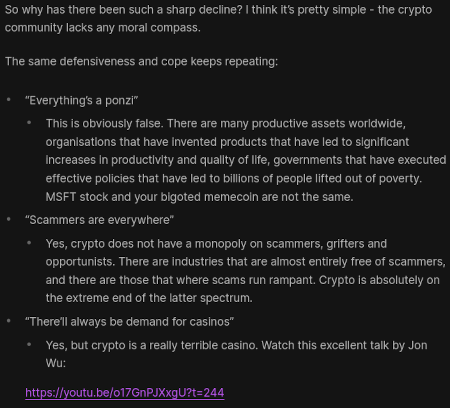
One answer to this conundrum is to shake our heads, expressing our disgust at such stupidity and expressing our firm disapproval. In a way, this is the right thing to do.
But at the same time, we can also ask another question:If people value entertainment, and financialized games seem to provide that entertainment at least sometimes, so is there a more positive attitude and approach?
Charity coins
One category of cryptocurrencies Ive looked at that I find interesting is one in which a large portion of the token supply (or some kind of ongoing fee mechanism) is dedicated to some kind of charity.
A year and a half ago, there was a (now no longer active) cryptocurrency called GiveWell Inu that donated proceeds to GiveWell.
Over the past two years, a coin called Fable of the Dragon Tyrant has been launched to support cultural projects related to anti-aging research, among other causes.
Unfortunately, neither project is doing very well: GiveWell Inu appears to be no longer maintained, while the other has some very annoying core community members who keep badgering me about multiple mentions They lose their enthusiasm.
After I was gifted half of the Dogelon Mars token supply, I immediately regifted it toMethuselah Foundation, the Methuselah Foundation and the Dogelon Mars community appear to have established a mutually beneficial relationship to transform ELON into a charity coin.
It felt like there was an untapped opportunity here to try and create something more positive and lasting. But ultimately, I think even that creates some fundamental limitations, and we could be doing better.
Robin Hood Game
In principle, people participate in Meme coins because (i) the value is likely to increase, (ii) they feel it is democratic and open and anyone can participate, and (iii) they are fun.
We could divert a large portion of a Meme coins supply to support public goods that people value, but this does nothing for the participants themselves and actually comes at the expense of (i), if not done well. Also at the expense of (ii). Can we do something that would improve both situations for the average user?
The answer to (iii) is simple: don’t just make a coin, make a game. But make a truly meaningful and interesting game. Don’t think about making Candy Crush Saga on the blockchain, think about making World of Warcraft on the blockchain.
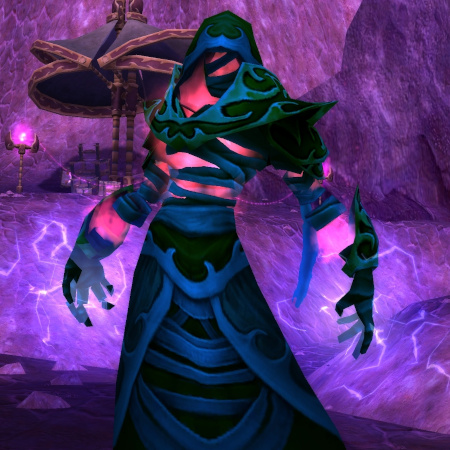
In World of Warcraft a Ethereum researcher. If you kill one, youll get 15 Silver, 61 Bronze, and a 0.16% chance of getting some Ethereum Relay Data. Dont try this in real life.
Now, how about the Robin Hood part? When I travel in low-income Southeast Asian countries, a statement I often hear is that some people or their family members were poor before but passedAxie InfinityThe play and earn feature becomes moderately rich. certainly,Things are not going so well for the 2022 Axie Infinity. But even so, I have the impression that if you take into account the play-to-earn nature of the game, the net financial benefit is negative on average for high-income users, but maybe (emphasis on maybe!) positive for low-income users.
This seems like a nice feature: if you have to be financially cruel to someone, be cruel to those who can afford it, but have a safety net to protect low-income users and even try to keep them cheaper than when they came in Better to leave.
No matter how well Axie Infinity does this, our intuition tells us: (i) if the goal is to satisfy peoples need for entertainment, we should make more complex and interesting games rather than simple copy-paste coins; (ii) In particular, games that improve the economic well-being of low-income players are more likely to leave their communities better off than they were before.
Charity coins and games can even be combined: a feature of the game could be a mechanism where players who successfully complete a task can participate in voting to decide which charities to release funds to.
That being said, making a truly fun game is a challenge - check out some of the entertainment stuff about Axienegative comments, and about their improvements since thenpositive view. The team I personally have the most confidence in making interesting crypto games is0xPARC, as they have successfully produced two crypto games (the first beingDark Forest,After thatFrogCrypto), players are willing to participate purely for fun, not to make money. Ideally, the goal is to create a co-creative environment where all players are happy:Money is a zero-sum game, but entertainment can be a positive-sum game.
summary
One of my personal moral principles is If there is a type of person or group you dont like, be willing to praise the part that best satisfies your values.
If you dont like the government because it infringes on peoples freedoms, maybe you can find something nice to say in your heart about the Swiss government.
The opposite approach—shouting “Yes, all X’s are part of the problem”—feels good in the moment, but it alienates people and pushes them into their own little bubble, completely insulating them from you Any ethical appeals that may be made in the future.
I feel the same way about the degen part of the crypto space.I have no enthusiasm for any coin that is known for being a totalitarian political movement, a scam, siphoning off funds, or that is exciting in month N but frustrating for everyone in month N+1. At the same time, I value people’s desire for entertainment, and I would rather the crypto space somehow ride on that trend rather than swim against it.Therefore, I would like to see more high-quality, interesting projects that have a positive impact on the ecosystem and the world around them (rather than just attracting users).
At the very least, create more good meme coins than bad meme coins, and ideally, support the public good rather than just meme coins that enrich insiders and creators. But even more ideally, make games instead of just cryptocurrencies, and make projects that people will enjoy participating in.